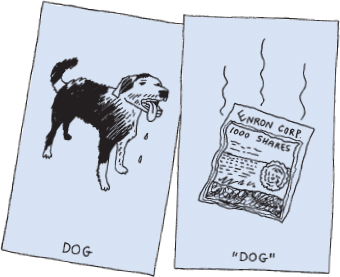Connotative Meaning
Printed Page 344

Many words may also have at least one connotative meaning—an association that comes to mind when people hear or read the word. A word’s connotative meanings may bear little or no resemblance to its denotative meanings. For example, when used as a noun in a statement about stocks, the word dog may connote a poor investment opportunity—yet the literal meaning of the noun dog is a specific type of canine.

By using words in your speeches deliberately for their connotative meanings, you can make a powerful impression on your audience. For example, a student named Betty made the following statement in her presentation on the history of hairstyles in the twentieth century: “In the roaring twenties, the short ‘bob,’ or ‘flapper’ haircut, exploded onto the scene through the rise of silent film star Louise Brooks.” When Betty used the verb exploded, she triggered the strong, fiery association that most people have with the word. This savvy use of the connotations of exploded helped Betty make her point far more forcefully than if she had merely said that the bob “became very popular.”
On the other hand, careless use of a word that has very different denotative and connotative meanings can backfire and confuse your audience. Consider Albert, a student who made the following statement in an impromptu speech about a school district’s refusal to lower the student/teacher ratio for class size in elementary schools: “That kind of decision really demonstrates some bigotry by the school board.” The word bigotry literally means the state of mind of a person who is intolerantly devoted to his or her personal opinions or prejudices—the meaning that Albert intended in his comment. Unfortunately, many people have come to associate the word bigotry with racial prejudice. Albert did not intend a racial connotation—he just wanted to say that he thought the school district was unreasonably wedded to its decision about class size. Unfortunately, many students in Albert’s class had experienced the pain of racial prejudice firsthand. Thus, they inferred from Albert’s use of bigotry that issues of race underlay the school board’s decision, which wasn’t true. If Albert had analyzed his audience more carefully, he might have known to avoid using the word due to its potentially misleading connotative meaning. Instead, he could have said that the school board stubbornly refused to change its view about class sizes remaining higher.